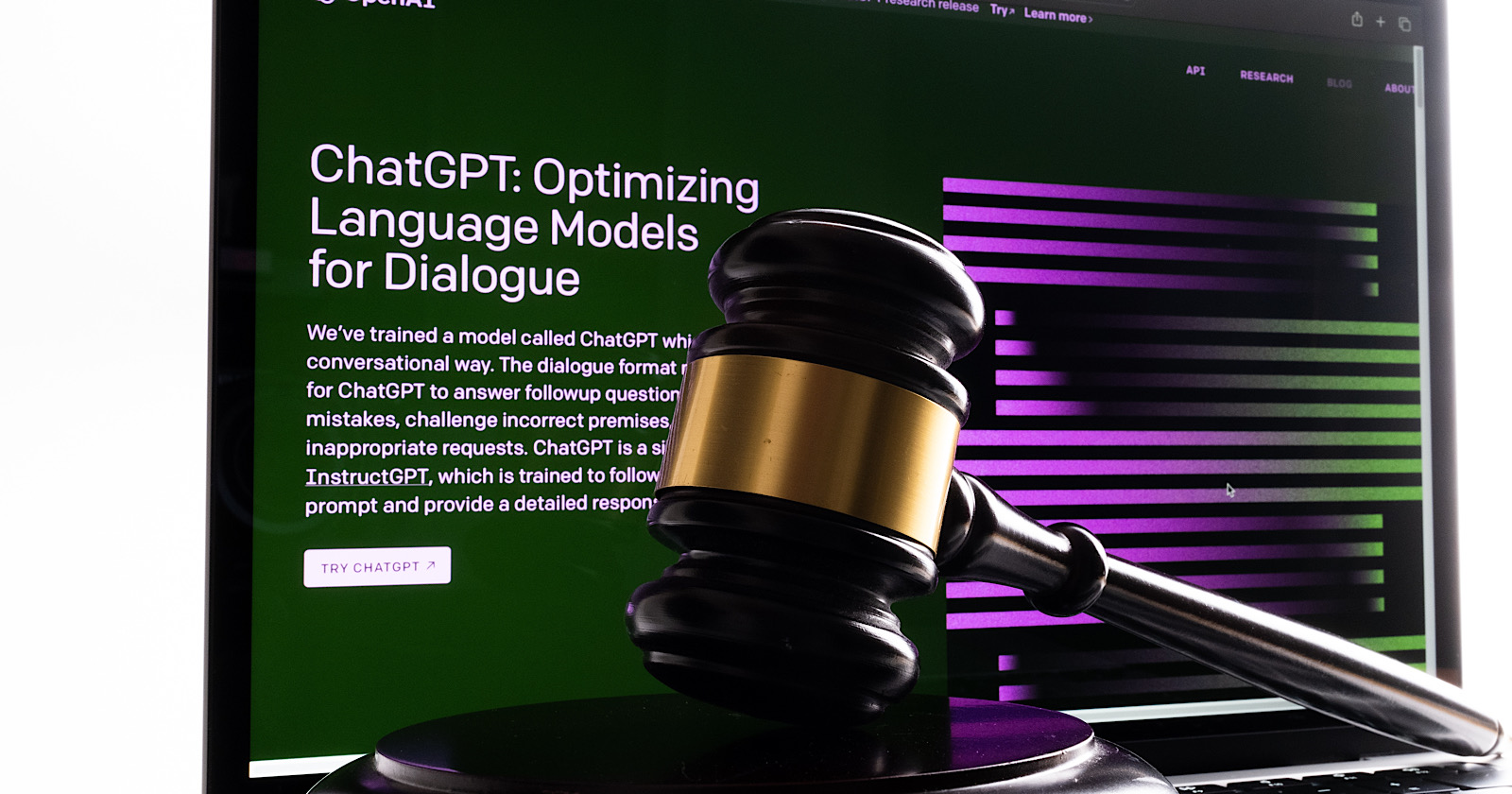OpenAI, the company that created ChatGPT, is facing a lawsuit claiming that OpenAI used copyrighted books without permission to train its AI systems.
The lawsuit was filed in federal court in San Francisco and alleged that OpenAI copied text from books unlawfully by not obtaining consent from the copyright holders, crediting them, or compensating them.
This lawsuit isn’t the first legal trouble OpenAI has faced recently. As lawmakers work to regulate the fast-growing AI industry, OpenAI has been sued in another class action lawsuit.
That other lawsuit claims OpenAI’s machine learning models, including ChatGPT and DALL-E, collect people’s personal information from across the internet illegally, violating various privacy laws.
The outcomes of these lawsuits could set important precedents regarding AI, copyright, and privacy that shape the regulatory landscape in the future.
Copyright Infringement Allegations
Two authors have filed a lawsuit alleging that OpenAI’s ChatGPT language model copied and used their books without permission.
The lawsuit, Tremblay v. OpenAI Inc, claims that ChatGPT can accurately summarize the authors’ science fiction and horror books. This suggests the chatbot has read and absorbed their works.
Pointing to a 2020 OpenAI paper, the lawsuit notes that 15% of the data used to train ChatGPT came from “two internet-based books corpora.”
The authors believe one dataset contained over 290,000 book titles from “shadow libraries” like Library Genesis and Sci-Hub, which illegally publish thousands of copyrighted books.
The authors allege that ChatGPT violated copyright law by removing copyright notices from these books.
Privacy Violations and Data Theft
A lengthy lawsuit was filed last week against OpenAI alleging that two of their AI models, ChatGPT and DALL-E, were trained using hundreds of millions of people’s data without proper consent.
The suit, titled PM v. OpenAI LP, claims that OpenAI obtains private information from people directly using their AI systems and other applications incorporating ChatGPT. The complaint argues that this data collection and use violated privacy laws, especially for children’s data.
The lawsuit claims that OpenAI has integrated its systems with platforms like Snapchat, Spotify, Stripe, Slack, and Microsoft Teams. OpenAI is accused of secretly gathering users’ images, locations, music tastes, financial details, and private communications through these integrations.
The lawsuit argues that this data collection violates the terms of service of these platforms and privacy laws and constitutes unauthorized access to people’s information.
The complaint names 16 plaintiffs who used online services and believe OpenAI took their data without permission.
OpenAI has not responded to a request to comment on the lawsuit.
Potential Consequences For OpenAI
OpenAI could face significant financial penalties if the court favors the plaintiffs, which may hurt OpenAI’s financial stability and ability to raise funds.
Some of the possible ramifications include:
- The lawsuits could damage OpenAI’s reputation and trust among key stakeholders like users, partners, and investors.
- Regulators may scrutinize OpenAI more closely, leading to stricter rules and compliance requirements.
- If using copyrighted data to train AI models is found to infringe copyright, OpenAI and others may have to change how they gather and use data.
- Depending on the rulings, companies using ChatGPT or other OpenAI products may rethink those relationships to protect their reputations and users’ privacy.
In Summary
OpenAI is amid several lawsuits that may impact the AI field by establishing important rules about copyright, privacy, and how data can be used.
For anyone following AI, it’s important to keep up with how these lawsuits progress and think about how they might lead to new laws and policies, change how AI tech is built, and require companies to adjust how they design and offer AI products and services.
Featured Image: Ascannio/Shutterstock





